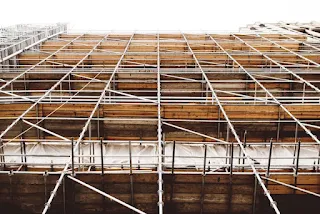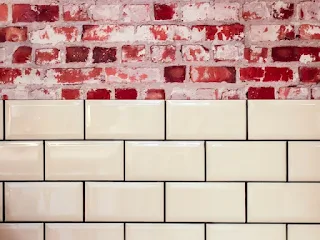The building materials sector has significantly risen in recent years due to increased population growth and the ever-rising demand for industrial companies. This has created a necessary market for construction materials to create suitable living standards and facilities that accommodate residential and business needs. As such, construction materials vendors have set up shops, creating an opportunity for those willing to venture into the building material business in Nigeria and Africa.
In this article, we'll be looking at the concept of the building material business in Nigeria, its profitability, and more. Read on!
What are Building Materials?
Building materials are essential for constructing any structure and come in various natural and man-made forms. Humans have used natural materials like wood, sand, gravel, and stone since ancient times to construct everything from basic huts to ornate cathedrals. These organic elements lend a unique aesthetic quality to many of the world's iconic buildings.
More modern endeavors need far more sophisticated solutions than what can be found in nature, which has led to the development of man-made building materials. These include cement, glass, steel, blocks, and lintels.
In addition to being strong and resilient enough to last over time, compatibility between building materials is also important. The correct combination of building materials can improve not only a structure's aesthetics but also its functionality. For example, combining concrete with steel reinforcement bars instead of one material increase its strength substantially. Ultimately, deciding which building materials should be used depends on several factors, including cost, budget availability, local climate conditions, and preference.
Is Building Materials a Profitable Business in Nigeria?
Yes, it is. With its rapidly expanding population, Nigeria's construction and real estate industries are both booming and expected to continue for the foreseeable future. This increased demand for construction materials allows entrepreneurs to make money selling building materials. However, as with any venture, it is important to understand the trends and dynamics of the industry before investing.
To succeed, you must consider factors such as the type of building materials being sold, the source of supply, pricing strategies, target markets, and marketing strategies. When running a profitable business, you must also consider logistics, storage needs, and delivery methods.
How Much Does it Cost to Start a Building Material Business?
The cost of starting a building material business depends on several factors. Depending on the types of materials you want to sell, you may need to make an initial investment in purchasing supplies, leasing storage space, and hiring employees. Additionally, depending on the location of your store and your desired customer base, you may need to invest in advertising or other marketing tactics. In many cases, you will also need to obtain permits and comply with other local regulations. But if you are starting little, #50000 will cover many things.
Which Building Material is Most Profitable?
1. Cement
Cement is one of the most profitable building materials in Nigeria. This versatile material is used in various construction projects and can be found in everything from foundations to walls, floors, and roofs. Cement is strong, durable, and relatively easy to work with, making it a popular choice for construction workers and DIYers. It would be best to consider bulk buying options when purchasing cement for resale to get the best price.
2. Steel Reinforcement Bars
Steel reinforcement bars are essential for any structure that needs extra support and strength. These bars are used in foundations, walls, and roofs and can be combined with other materials like concrete or wood for even more durability. Steel reinforcement bars come in various sizes and lengths, making finding the right fit for any job easy.
3. Blocks
Blocks are one of Nigeria's most commonly used building materials. They come in various sizes and shapes, making them ideal for constructing walls, foundations, and other structures. Blocks are strong and durable and can be combined with mortar or concrete to create a more resilient structure. It would be best to consider bulk buying options when purchasing blocks for resale to get the best price.
4. Tiles
Tiles are also popular building materials; they are profitable because you'll hardly see a modern house without tiles. People use them for flooring and wall decoration in residential and commercial buildings. They come in various sizes, styles, and colors, making them easy to match with any décor.
5. Paint
Paint is another profitable building material. It's used to protect surfaces from weather damage and can create a style or mood in any room with the right color. People can't do without painting their buildings, so investing in paint is a smart business decision.
How to Start Building Materials Business
1. Write a Plan
A successful business plan should outline the steps for starting the business and how it intends to attract and retain customers. First, you need to assess the local market to determine what types of building materials are in demand, their competitive pricing, and potential markets. You must also determine what products to offer, potential suppliers, staffing requirements, and shop layout. Additionally, selecting the appropriate finance option based on value versus cost is important.
The centerpiece of any new business plan should be a clear marketing strategy outlining how to reach a local and beyond the target audience. This includes advertising campaigns utilizing traditional methods such as TV or print ads and more modern approaches.
2. Decide on the Material Type
Stocking your store with high-quality materials is paramount when running a building material shop. Various products should be available to ensure customers can access the materials they need for their construction projects. Popular items include cement, steel bars, sand, bricks, aggregator or ballast, iron, round bamboo poles, and ladders. In addition to these basic components, various types of construction equipment would also benefit customers.
Stocking every construction material right away is unnecessary when opening a new store. It may be best to begin by first offering the most in-demand materials throughout the area. Customers will appreciate that they can find all the supplies they need in one place without searching through multiple stores.
3. Work with Trusted Suppliers
Finding a supplier who can offer quality merchandise and reliable services is essential. A good reputation is key when selecting a provider; you should always look for suppliers with good ratings and reviews or recommendations from other shop partners, contractors, or foremen.
By forming strong relationships with trusted suppliers, you can be sure of their reliability and competitive pricing. Quality customer service should also be taken into account when making your decision. Also, thorough research on potential suppliers will make the process much smoother and better protect your business in the long run.
Ultimately, cooperating with the best and most trusted supplier will help ensure your customer's expectations are met every time they purchase from your store.
4. Choose a Location
Another important step in launching a successful construction materials business is picking an ideal location. While the best areas would be in suburban or rural regions, you need to consider the space requirements of the business. A minimum of 2000 square feet will suffice for such businesses while ensuring that vehicles like mini lorries, pick-up trucks, and goods vehicles have easy access.
It would be best if you also considered factors like other successful outlets nearby for swift delivery to customers and the accuracy of availability regarding supplies of building materials. You should not miss out on any crucial details before renting a shop to ensure your construction materials business doesn't go astray. With sufficient research into the needs of local contractors and builders, combined with intelligent planning and foresight, one can successfully grow their construction materials business.
Challenges in the Building Material Business in Nigeria
The building materials business has its challenges. One of the major challenges is material overstocking, which can lead to a shortage of working capital and leave you with little money for new material purchases. To deal with this, you must judge the customer demand and purchase materials accordingly.
Another challenge in the building materials business is managing your inventory efficiently. With ever-changing customer demands, it can be difficult to predict what will sell when and thus, maintaining an appropriate stock level is essential for minimizing losses. Understanding local trends and adjusting prices proactively according to varying market conditions can also go a long way in ensuring you stay competitive.
Furthermore, quality control plays a pivotal role in this industry, as faulty products can cause substantial losses to firms.
Conclusion
Starting a building materials business in Nigeria can be a lucrative venture. The business can grow exponentially with the right location, trusted suppliers, and efficient inventory management. However, it requires careful planning and foresight to overcome the various challenges that come with this industry.
 Sodiq J.
Sodiq J.






